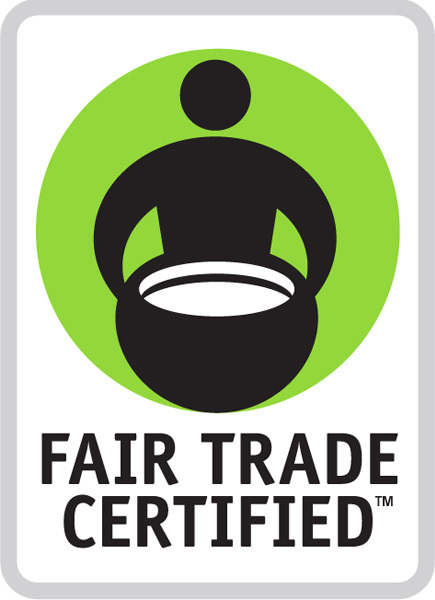Imports of Fair Trade Certified Produce on the Rise
Fair Trade USA expands fresh produce program with introduction of new farms and varieties; imports into the U.S. and Canada increase by more than 40 percent.
OAKLAND, Calif., October 25, 2012 /3BL Media/ - Fair Trade USA, the leading third-party certifier of Fair Trade products in the United States, today announced significant growth and expansion of its Fair Trade Certified™ fresh produce program. Data shows strong growth across nearly every source country and product, resulting in more than 71.5 million pounds of Fair Trade Certified fresh fruit and vegetables imported in 2011, a 40 percent increase over 2010. In addition to growth in banana imports, new products including watermelons, bell peppers, cantaloupes, tomatoes and more have been added to the Fair Trade Certified produce mix.
Building on this momentum, 2012 is shaping up to be even bigger. Over 55 million pounds of Fair Trade Certified produce were imported in the first half of the year -- more than the full year of 2010.
Growth in the produce category enabled Fair Trade fresh produce farmers and farm workers to earn nearly $1.8 million in community development premiums in 2011 alone. These premiums are used for community-elected development projects that support education, healthcare, environment, business management, quality improvement and productivity.
“There’s a lot of momentum right now as retailers start to see positive sales data and ask more of their growers to get Fair Trade Certified,” said Hannah Freeman, Director of Produce and Floral for Fair Trade USA. “They see Fair Trade as a way to invest in the sustainability of their supply chain while giving consumers the traceability they increasingly seek when purchasing fresh produce. It’s like a farmers market gone global.”
Expanding Fresh Produce Program
The dramatic growth in Fair Trade Certified produce can be explained not only by increasing demand from retailers and consumers, but also by the certification of new produce varieties and farms. In 2010, the only Fair Trade Certified produce items available at supermarkets were bananas, citrus, mangos and pineapples. Between 2011 and 2012, Fair Trade USA has made eight new products available to US consumers with the introduction of new Fair Trade farms in Northern Mexico. At least four additional fresh products are expected to be imported during the last half of 2012.
Fair Trade Certified bell peppers from Divemex and cucumbers from Divine Flavor hit store shelves for the first time in 2011. In spring 2012, Divine Flavor sold its first Fair Trade Certified table grapes, peaches, seedless watermelon, cantaloupe and roma tomatoes.
“We decided to get Fair Trade Certified to further improve the lives of our workers,” said Carlos Bon of Divine Flavor. “They sacrifice so much to help make our business better that we feel a need to give even more back.” Divine Flavor farm workers plan to invest Fair Trade premiums in clean water, ambulances and health clinics in their hometowns in Southern Mexico.
Two of Giumarra’s growers, Rancho Salazar and Rancho Pablo Borquez, also achieved Fair Trade certification in 2012 and are now offering grapes, asparagus and watermelons. Wholesum Family Farms now offers organic tomatoes, eggplant, cucumbers, zucchini and bell peppers as well as conventional Euro-cukes. Other new Fair Trade fresh produce products include honeydew melons and mini-watermelons.
Organics on the Rise
One of the most notable trends within the produce category in 2011 was continued growth in organic imports, which increased by approximately 63 percent year-over-year, from over 26 million pounds to over 42 million pounds. Today, more than 60 percent of all Fair Trade Certified produce imported into the U.S. is also certified organic.
# # #
Fair Trade USA, a nonprofit organization, is the leading third-party certifier of Fair Trade products in the United States. Fair Trade USA audits and certifies transactions between U.S. companies and their international suppliers to guarantee that the farmers and workers producing Fair Trade Certified goods were paid fair prices and wages, work in safe conditions, protect the environment, and receive community development funds to empower and improve their communities. Fair Trade USA also educates consumers, brings new manufacturers and retailers into the Fair Trade system, and provides farming communities with tools, training and resources to thrive as international businesspeople. Visit www.fairtradeusa.org for more information.





